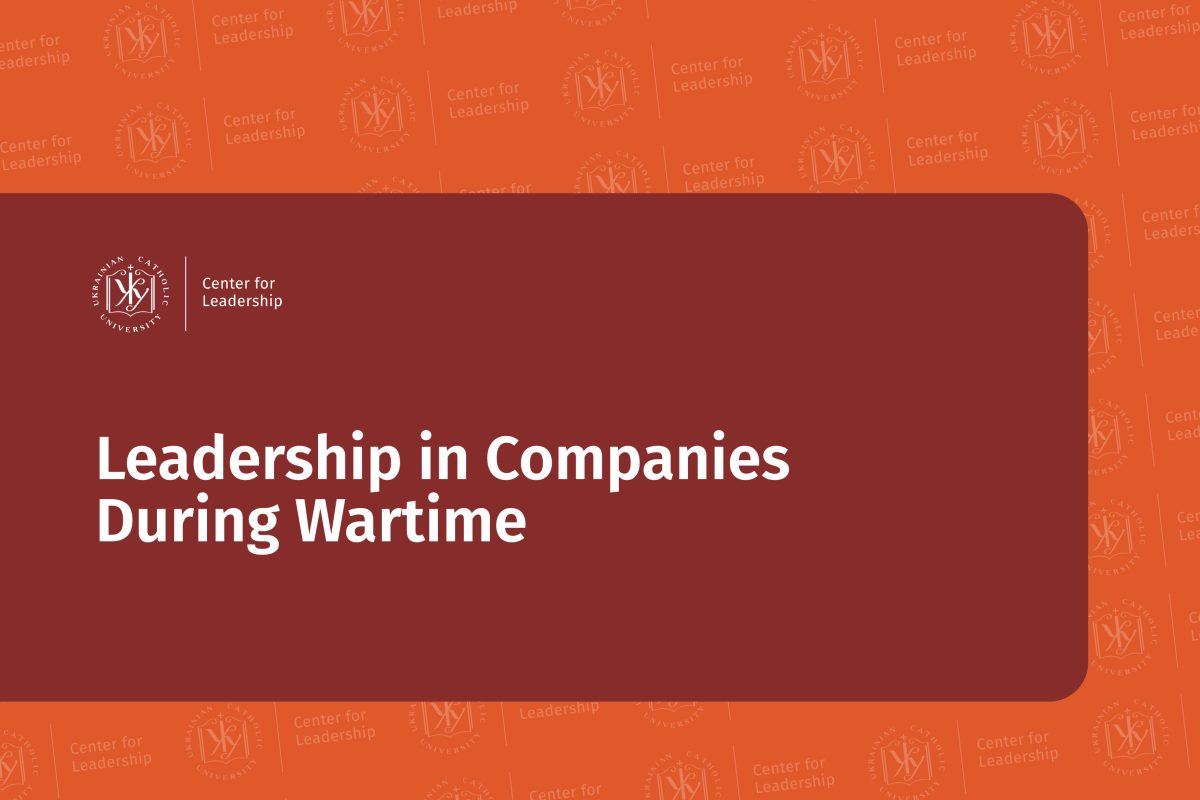
Leadership in Companies During Wartime
Business leaders have their own front lines. The tasks of business today are to develop the economy, support society and the military, and be the drivers of the country’s economic growth.
Speakers at the event included Vasyl Khmelnytsky, founder of the UFuture holding company, Taras Kutsmei, owner of SoftServe, and Andriy Rozhdestvensky, Executive Director of the UCU Leadership Center. The discussion was moderated by Roman Bilyk, managing partner at Nexia DK.
The Spring Business Forum, titled “The Ukrainian Dream — Paths to Rebuilding the Country After the War,” took place in Lviv on May 20, 2022. Vox Ukraine was an analytical partner of the event and is publishing a series of articles as part of this partnership.
Watch the Forum recording.
Leadership Perspectives from the Speakers
Taras Kutsmei views leadership as the ability to determine direction, create atmosphere, and overcome difficulties. These are qualities that benefit every employee but are especially crucial for those managing others—leadership is what enables results. Based on his experience, the emotional state of employees, in addition to external shocks and challenges, now plays a significant role in company dynamics. Before the full-scale war, we were not in a situation where we could lose our lives, country, or property at any moment. In such crises, the role of leaders who can support their teams and maximize individual effectiveness becomes paramount. Taras shared several tips for leaders in this situation:
- Don’t dwell on what is lost. Don’t waste time and energy on regret; instead, focus on creating new opportunities and good around you.
- Avoid extremes and keep a cool head. Use agile approaches. Focus on being better today than yesterday and even better tomorrow. Solve issues gradually, step by step.
- Consistently discuss all important business aspects, both at the management level and with employees. People should feel they have access to all the available information.
SoftServe is currently conducting two types of relocations: one to safe areas and another for business development. Sometimes these two objectives can be combined. However, there remains a key issue of whether IT workers will have homes to return to and whether they will want to come back. Changing tax residency is a real threat, and a solution could involve agreements with countries hosting displaced persons, allowing them to continue paying taxes in Ukraine while receiving their income from here.
Vasyl Khmelnytsky’s Vision
Vasyl Khmelnytsky continued the conversation, proposing the development of more industrial parks focused on production and innovation. He is actively working on constructing such parks, where businesses can quickly relocate, rent space, and begin working in a new location. He is inspired by Poland’s experience, which has 16 industrial parks. However, Khmelnytsky emphasized that human capital is key: the development of individuals drives the growth of companies, and company growth, in turn, drives the growth of the country. For this, educational centers that teach in new ways are necessary. Khmelnytsky highlighted the importance of economic leadership from both national and local authorities, which is reflected in active business support and comprehensive facilitation of business development. Lastly, he noted that it’s crucial for Ukrainians to take the initiative in rebuilding the country—financial support will not simply be handed out without effort.
Andriy Rozhdestvensky on Crisis Leadership
Andriy Rozhdestvensky pointed out how military experience can be applied to business. In crisis situations, military personnel often follow three rules:
- A wrong decision is better than no decision.
- Not making a decision is also a decision.
- If you want to make the right decision, make any decision and make it right.
Of course, when you have access to analytics and data, these methods may not be ideal. However, in critical situations, correct solutions can often be found through intuition and gut feelings.
Conclusion
The speakers agreed that a leader’s ability to manage expectations and create opportunities for future growth is essential. As Taras Kutsmei emphasized, “Only by creating a good future can you bind people to a place.”
Author: Yulia Mincheva
Source: Vox Ukraine